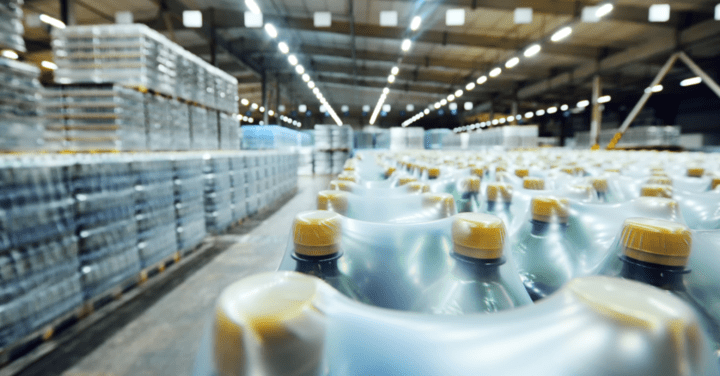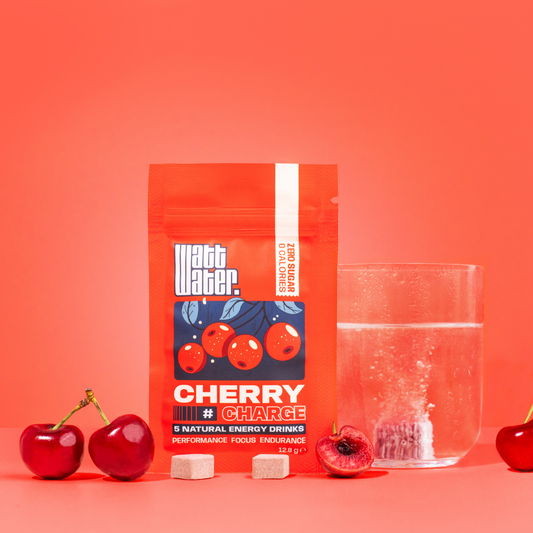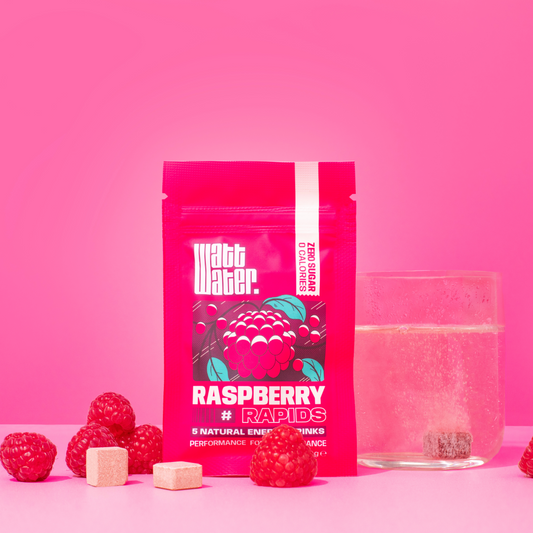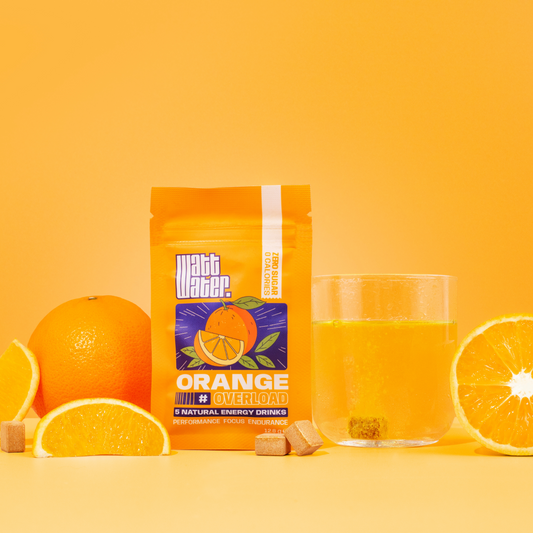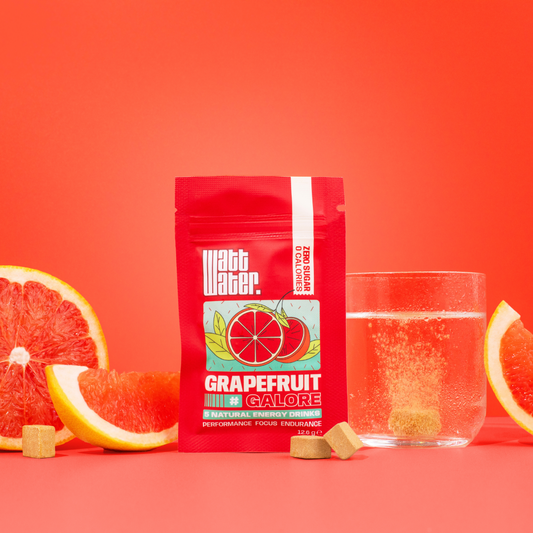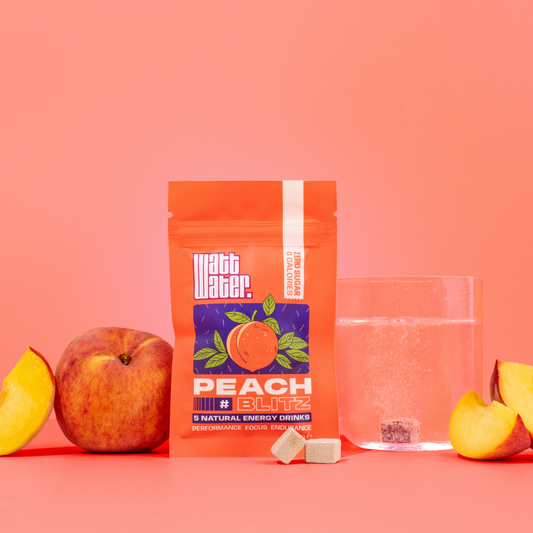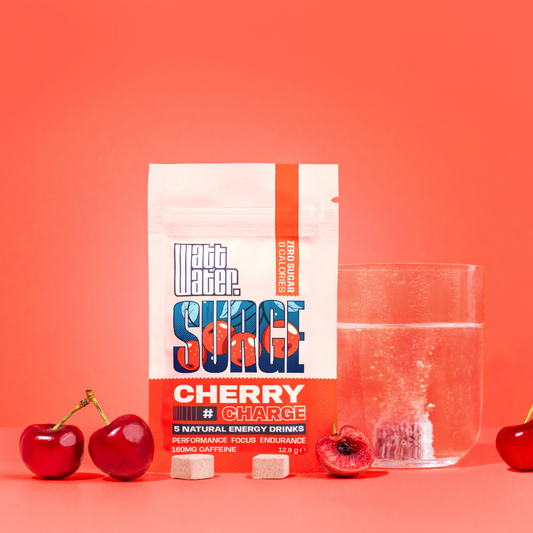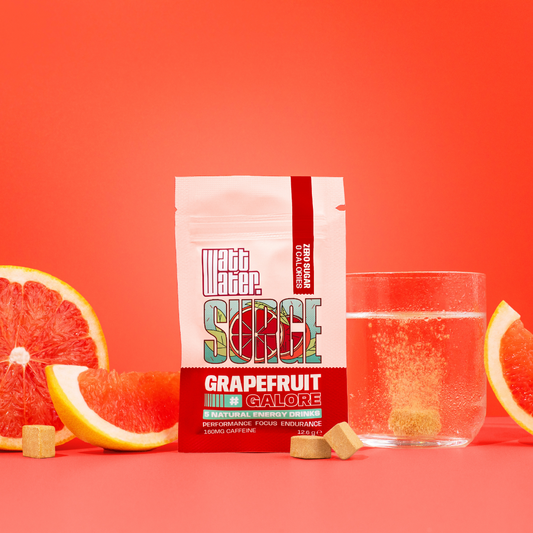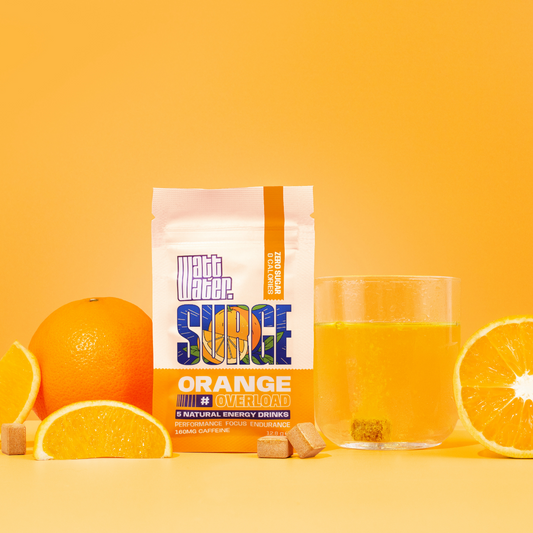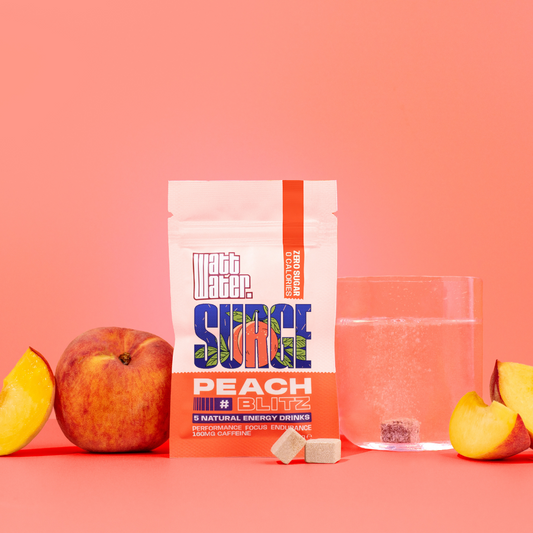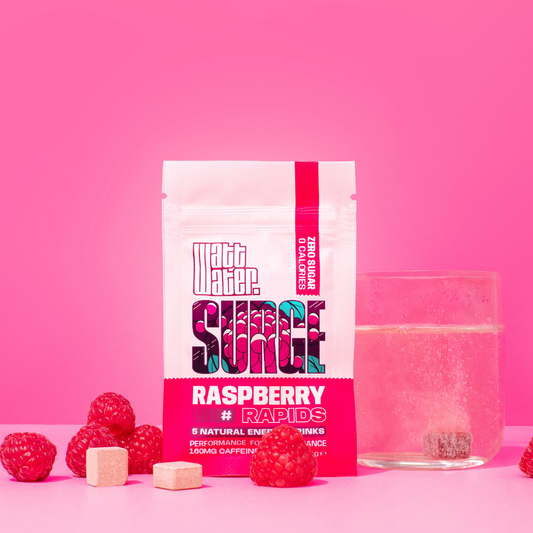Sourcing Ingredients Responsibly
Choosing Watt Water® means embracing an environmentally sustainable beverage option that respects nature and our planet. We are dedicated to making a positive impact on the environment, starting with our ingredients. Our positive impact begins in the vast fertile agricultural fields of the Amazonian forest, where we work directly with local farmers to grow, harvest and process Guayusa extract used in Watt Water® drinks.
Organic Agriculture Practices
The Guayusa extract used in Watt Water® drinks is a product of local indigenous organic agriculture. Guayusa cultivation is known as income wellspring for local farmers from the Amazonian Region. The Guayusa leaves are grown in forest gardens on a variety of Holly tree. The holly tree found at elevations up to 2,000m in the countries of Ecuador, Colombia, and Peru. Industrial techniques of mass cultivation including irrigation and artificial growing light are not typically used for guayusa agriculture in the western Amazon.
No Chemicals, Fertilizers or Pesticides
Local farmers in the western Amazon grow Guayusa plants without the use of fertilizers, pesticides, or other toxic chemicals. One scientific study that screened Guayusa leaves for 389 toxic chemicals and pesticides, detected no residues. Scientists have carried out other tests of microbial contamination, but dried guayusa leaves processed using standard commercial methods have tested negative to a range of broad bacteriological screens. It has been suggested that the inherent antibacterial properties of guayusa provide a natural protection against postharvest bacteriological contamination.
Sustainable Cultivation and Processing
After three years of nurturing, Guayusa leaves can be harvested by manually picking leaves two times per year. Local farmers avoid heavy machinery that risks affecting local wildlife, while further reducing our carbon emissions. Once picked, the leaves are rested to wither, as a subtle form of fermentation. They are then dried until dehydrated and macerated to create a course granular powder used in Watt Water®. By practicing sustainable farming, we ensure the delicate ecosystems of the rainforest remain unharmed, preserving biodiversity and protecting the environment for future generations.
Innovative Ecological Concept
Watt Water® aims to end the use of single-use plastic bottles. Every minute, over one million plastic bottles are bought globally. This is equivalent to about 20,000 bottles being bought every second. Plastic bottles account for a large share of the 400 million tons of global plastic pollution in the world, with 85% of bottles sold becoming waste. Most bottles aren’t recycled and the plastics used can take up to 1,000 years to degrade, polluting our environment, contaminating our food and threatening our health.
No More Plastic Bottles
Watt Water® provides a sustainable alternative to single-use plastic. Our Watt Water® cubes are packaged and sealed in lightweight pouches, made of only 0.8g of biodegradable polyethylene. This intelligent approach ensures that each Watt Water® drink (one cube dissolved in 500ml of water) contains a mere 0.16g of plastic, compared to the 20g of plastic found in an equivalent 500ml plastic bottle. By utilizing approximately 99.2% less plastic per drink, Watt Water® drastically reduces plastic waste.
Minimal Plastic Packaging
Single-use bottles are problematic because of the extra plastics used to package, transport and store them. Bottles are typically packaged into packs using plastic. They are then stacked onto shipping pallets ready for transport, using even more plastic, such as bubble wrap or packaging foam. These plastics are often “hidden” from consumers who are not aware of the total plastic cost involved in consuming beverages from single-use bottles. Thanks to our innovative concept, Watt Water® further minimises the quantity of these “hidden” plastics required to package, transport and store its products.
Committing to Zero Plastic
Watt Water® is founded on a commitment to end the use of plastic backpacking. Our products currently use relatively small amounts of plastic packaging compared to other beverage companies. We aim to work with our suppliers, partners and customers to end our use of plastics entirely. To help realise this vision, we will reinvest our profits into researching innovative manufacturing, packaging and transportation processes that provide sustainable ecological alternatives to existing practices. Through these future innovations, Watt Water® will work to disrupt the current status quo in the beverage industry.
Lowering Carbon Footprint
Using plastic bottles has other environmental costs. Manufacturing, transporting and stocking plastic bottles releases harmful emissions into our atmosphere through the burning of fossil fuels. Carbon dioxide (CO2) emission are the primary driver of global climate change. It is estimated that the global carbon footprint of plastic bottles is between 67 billion and 192 billion kg of CO2 per year. This is equivalent to a third of the CO2 emissions emitted by the aviation industry. Watt Water® maintains the highest environmental standards at all stages of its manufacturing process to lower its carbon footprint.
Manufacturing Carbon Footprint
It is estimated that manufacturing a plastic bottle can account for 38% of its total carbon footprint. Raw materials must be heated to manufacture plastic resin. Plastic resin is made by heating hydrocarbons in petroleum and natural gas to extreme temperatures to break down large hydrocarbon molecules into smaller ones. The small hydrocarbons are then combined in different ways to make plastic. Once plastic resin is made, further energy is used to melt it into a bottle shape. Watt Water® minimises its carbon footprint by avoiding the energy costs associated with manufacturing thousands of plastic bottles.
Transportation Carbon Footprint
It is estimated that transportation can account for 29% of the total carbon footprint of a plastic bottle. During the production of plastic bottles, raw materials are transported long distances to factories where they are used to manufacture bottles. Empty plastic bottles are then transported elsewhere so they can be filled with beverage, sealed and packaged. Plastic bottles are then shipped by land, air and sea to retailers who store and sell these products. Watt Water® is manufactured in one single factory and shipped directly to customers. This reduces our carbon footprint, as we minimize transportation costs.
Other Carbon Footprint Variables
A plastic bottle has many other environmental costs that contribute to its carbon footprint, including cleaning, filling, packaging and storage. According to estimates, these additional processes can account for up to 33% of a bottle’s carbon footprint. Watt Water® cubes come in lightweight pouches that require a fraction of space to stock on shop shelves or at home in the fridge. We also reduce the amount of plastic waste generated by the use of plastic bottles, the recycling of which also uses energy contributing to carbon emissions.
Consumer Carbon Footprint
Watt Water® aims to provide a practical, flavourful and ecological alternative to plastic bottled beverages by encouraging the consumption of tap water. Studies have shown that the carbon footprint of tap water is about 1/300 or 1/1000 compared to bottled water. Consumers can now reach for a Watt Water® cube and actively participate in reducing their carbon emissions towards a net zero vision, while enjoying a tasty, energizing beverage.

